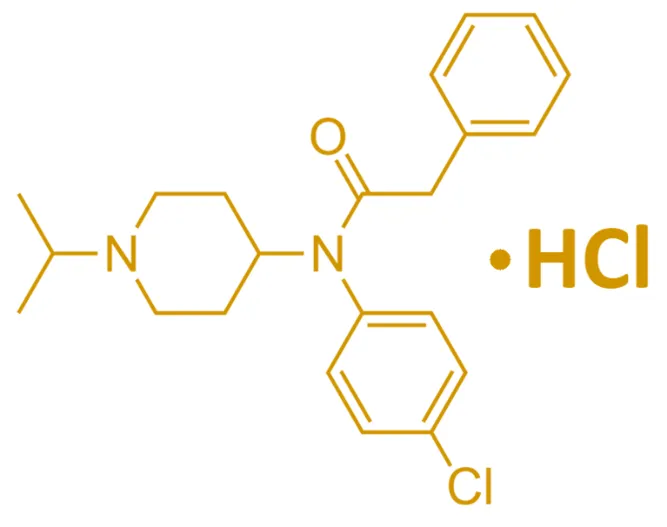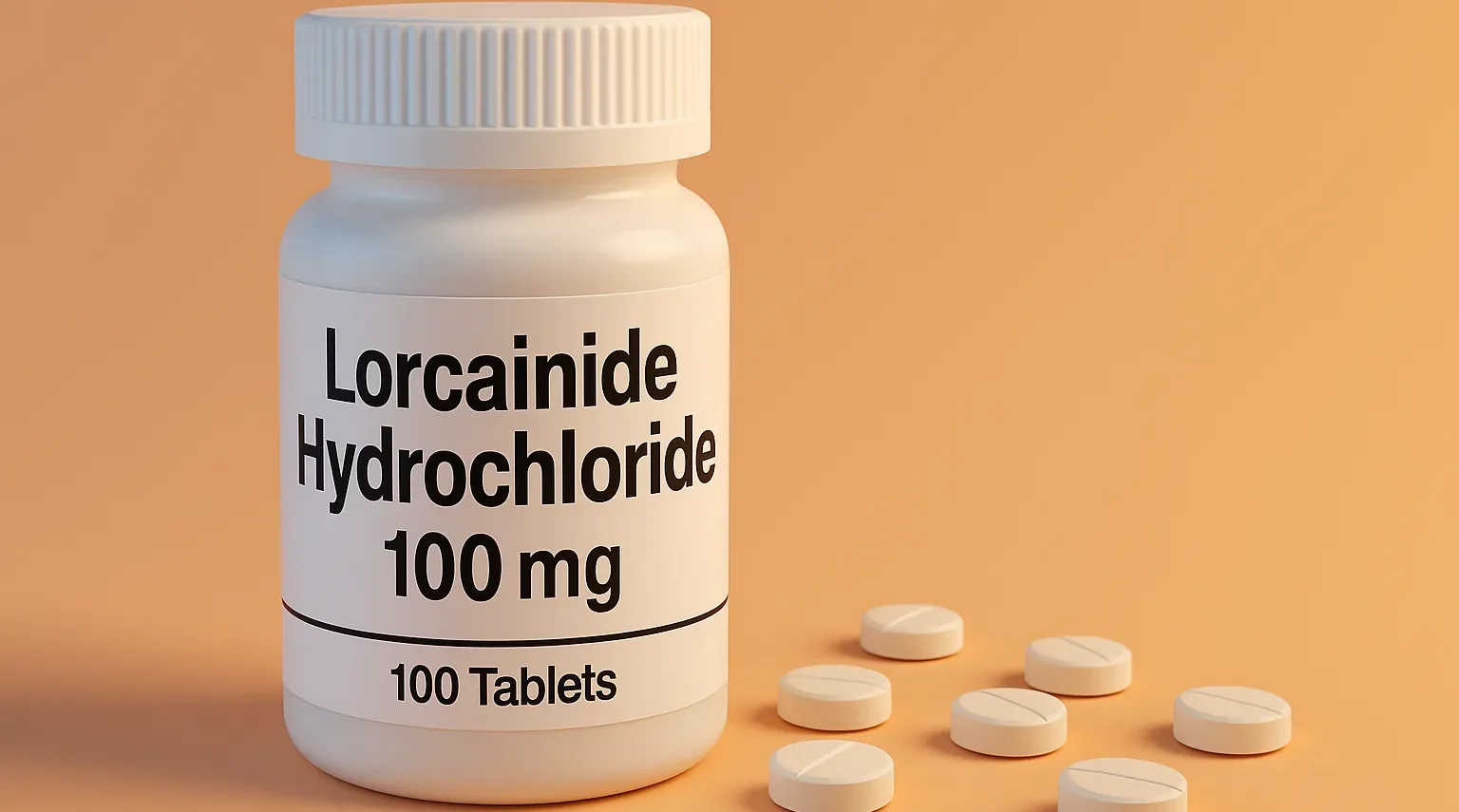Lorcainide Hydrochloride is a class Ic anti-arrhythmic used in life-threatening arrhythmias by strongly blocking sodium channels.
Structure of Lorcainide Hydrochloride
- Lorcainide hydrochloride is a class IB antiarrhythmic agent similar to lidocaine, featuring an amide linkage and an aromatic ring. It exists as the hydrochloride salt to enhance solubility.
- Chemical Formula: C₁₁H₁₉N₃O₂ · HCl

Mode of Action
- Class IB Antiarrhythmic: Blocks fast sodium channels, shortening action potential duration and refractory period.
- Selective on Ventricular Myocytes: Primarily affects ventricular tissues, reducing ventricular excitability.
- Effect on Heart Rate: Minimal impact on atrial tissues, useful for ventricular arrhythmias without significant atrial suppression.
Advertisements
Uses
- Ventricular Arrhythmias: Treats ventricular tachycardia and ventricular fibrillation.
- Post-Myocardial Infarction: Prevents arrhythmias during the acute and chronic phases.
- Arrhythmic Syndromes: Used in specific cases like Brugada syndrome to stabilize cardiac rhythms.
- Research: Employed in studies investigating antiarrhythmic mechanisms and drug efficacy.

